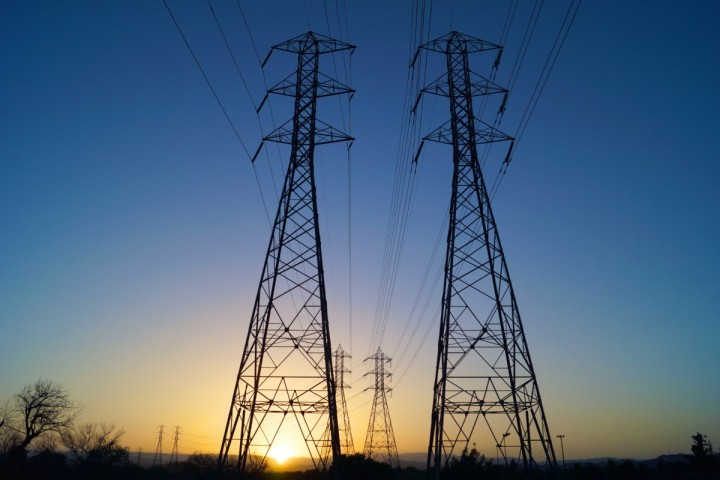As household bills go through the roof, the bosses are showing how out of touch they are with the lives of ordinary people. Only nationalisation can solve Britain’s energy crisis.
With dozens of UK energy suppliers going bust in recent months, and prices soaring, millions are threatened with the prospect of being plunged into fuel poverty this winter.
According to fuel poverty charity National Energy Action, six million households in Britain – the highest level since records began in 1996 – are soon expected to be unable to pay their energy bills.
Added to rising prices for food, transport, and rent, alongside attacks on wages, welfare, and public services, the cost-of-living crisis facing the working class is a dismal reflection of the general crisis of British capitalism.
Out of touch

But while many families face the difficult decision between ‘eating and heating’ this winter, some of Britain’s biggest energy companies are demonstrating how oblivious the bosses and big business are to the daily struggles of ordinary people.
E.ON, for example, sent thousands of customers pairs of socks, labelled ‘heating down, CO2 down’ – a staggering attempt at ‘greenwashing’ a crisis which is leaving many in the cold.
SSE Energy, meanwhile, outrageously advised customers to eat porridge, cuddle with pets, and do star jumps in order to stay warm.
Both firms soon issued public apologies for their insensitivity. But the bosses’ regrets won’t heat homes or pay the bills.
The real affront is not this-or-that misjudged marketing message, however, but the fact that such offensively trivial suggestions are seemingly all the capitalists have to offer.
@eon_next I don’t want your cheap nasty free socks I want cheaper utility bills please #eon #energy #energycrisis pic.twitter.com/lKgDNtci0R
— Lord Hornchurch (@LordHornchurch) January 14, 2022
No end in sight
This already-dire situation is only set to get worse, with the energy price cap expected to rise in the coming months from a household average of £1,277 per year to £1,600; and even to double to £2,400 by the end of the year.
By the end of October last year, 12 energy suppliers had gone bust. Barely two months later, and this figure stood at 26.
As the industry struggles to deal with the ongoing crisis, and the need to absorb over 4.3 million ‘orphaned’ customers, regulators Ofgem have granted £1.83 billion in compensation to help suppliers cover extra costs. And this could rise further to £2.5 billion by some estimates.
It is ordinary people, however, who will be expected to repay this staggering sum: passed down via local distributors and grid operators to further burden bill-payers.
Energy sector workers will bear the brunt too, with Ovo (parent company of SSE Energy) already confirming 1,700 redundancies – a quarter of their staff.
Hopes that this crisis might be short-lived, meanwhile, were dashed recently, with bosses at Centrica – the UK’s largest energy supplier – announcing that they expect sky-rocketing bills to continue for two years.
“We warned the #OVOenergy directors about blundering into the SSE takeover. Ovo must be subject to severe scrutiny before the union decides on our next moves, but if they move to compulsory redundancies they will be fully opposed.” Unite’s Simon Coop.https://t.co/ferer8H1IG
— Unite the union: join a union (@unitetheunion) January 13, 2022
Lucky for some

It is clear that the energy crisis is only one aspect of the wider crisis of global capitalism, of which British capitalism is a particularly severe casualty.
Indeed, the risks of knock-on effects from the energy crisis – including power cuts and factory shutdowns – have only grown this year.
And, far from instilling confidence, the Tories have made quite clear their reluctance to intervene or use state coffers to offer support, leaving energy-intensive industries out in the cold. Instead, the government seems intent on leaving the country’s fate in the invisible hands of the free market.
But it’s not all doom and gloom…for some. With rising wholesale prices in the UK and Europe, and soaring demand, North Sea oil and gas companies are set to see mega profits, rising asset values, and – of course – huge pay-outs for shareholders and investors.
While workers are laid off and burdened with rising living costs, shareholders at companies like Harbour Energy, the largest North Sea explorer, are expected to receive over £140 million a year in dividends.
Blackmail and blackouts
With the industry awash with money, some MPs are looking to the idea of a windfall tax as the solution, with calls for higher taxes on bumper profits in order to subsidise surging household energy bills.
Labour, for example, is proposing a 10 percentage point increase in corporation tax on North Sea oil and gas for one year.
The Conservatives are too distracted by scandal and infighting to fix their own cost-of-living crisis.
Labour’s plan, funded by a windfall tax on North Sea oil and gas profits, would save most households around £200, giving people the security they deserve. pic.twitter.com/y0r0ur9qwS
— The Labour Party (@UKLabour) January 19, 2022
Shadow chancellor Rachel Reeves has also blamed the runaway energy crisis on the “dither and delay” of Tory ministers .
No doubt the Tories have made matters worse by standing aside and allowing the energy crisis to roll on. And there can certainly be no trust in them to resolve the crisis. Their only interest is in boosting the profits of big business, not in saving millions of households from fuel poverty.
The current crisis, however, is not simply of their making, but is a product of the crisis and chaos of capitalism itself; the result of a system based on production for profit and the anarchy of the market.
In this respect, tax increases – even of 20 or 30 percentage points – are not enough. For starters, the capitalists can always squirm their way out of paying such taxes, using all manner of financial tricks and accounting loopholes.
Industry spokespersons, meanwhile, have openly warned that tax rises would provoke a reduction in investment, reduce expected tax revenues, and risk exacerbating the crisis.
In other words, the bosses have nothing to offer but blackmail and blackouts: a potent reminder that – as long as production remains in private hands – ordinary people will always be held hostage by callous capitalists, with their insatiable thirst for profits.
Nationalise the monopolies
We cannot tinker around the edges, but must tackle the problem at its root.
Instead of calling for minor tax reforms, the leaders of the labour movement should be mobilising workers around bold socialist demands: for the nationalisation of the big energy monopolies – under democratic workers’ control, and without any compensation to their current fat-cat owners.
Only then can we begin to provide rational solutions to this crisis.
On the basis of capitalism, the future facing us is one of fuel poverty, cold homes, and climate catastrophe. Yet the technology and resources exist to provide clean, sustainable, affordable energy to all, and to properly insulate our homes in order to keep us warm and healthy from year to year.
To realise this potential, however, we must break with the anarchy and chaos of the market, and instead plan production on the basis of need. That is why we must fight to overthrow capitalism, and struggle for the socialist transformation of society.
Letter: Let them wear socks
Dear editor,
This new year is set to bring an astronomical rise in energy bills, with costs expected to double by April. This will push millions into a cost-of-living crisis, where rising costs and stagnant (or even declining) wages will squeeze households across Britain.
What solution do the energy sector bosses propose for those affected by the energy crisis? Well, energy giant E.On recently sent out 30,000 pairs of socks to their customers to encourage them to have a “light [carbon] footprint”.
Another provider, Ovo, advised customers to do star-jumps and cuddle pets to keep warm.
How out of touch can the ruling class be? 8,500 people died last winter due to cold homes. Who knows many more will die, or already have died, because they do not have access to safe and warm shelter in the fifth richest country in the world?
A better approach to the energy crisis comes from our fellow workers in Kazakhstan. Rather than accepting socks or star-jumps, Kazakh workers organised a strike wave and street protests.
While their revolutionary energy sadly did not lead to an overthrow of their ruling class, it did far more to advance the cause of the workers than any hollow and tasteless gestures from the energy cartels.
The solution is nationalisation of the energy sector under democratic workers’ control, in a planned economy where winter demands are anticipated and prepared for. Until then, every death from freezing is blood on the hands of the ruling class.
Comradely,
Dr Raj Mistry
South East England






